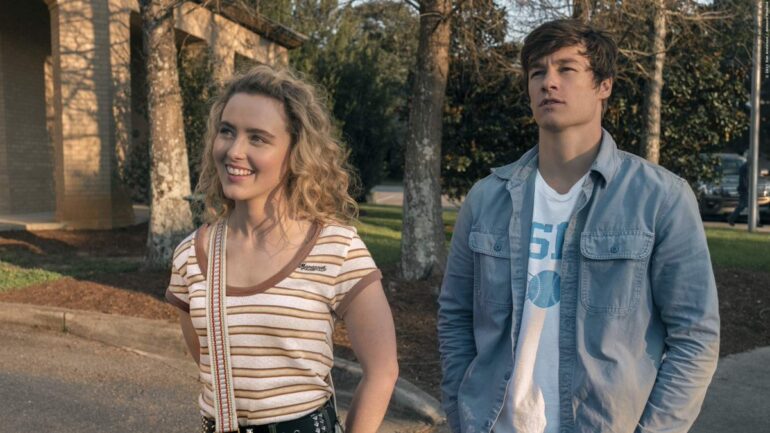The Map of Tiny Perfect Things is a time-loop movie. At this point, we have been privy to an ad nauseam quantity of such films. There was Groundhog Day, Edge of Tomorrow, Happy Death Day, Before I Fall and of course, last year’s latest entry to the genre, Palm Springs. All of these movies have tried to distinguish themselves in some way – Happy Death Day embraced the camp, while Before I Fall played into the melancholia of a finite end that you cannot escape.
The Map of Tiny Perfect Things, however, goes down a somewhat more allegorical route, where these characters try to ascertain the meaning of life and the reason behind them being stuck in this loop of broken time. I say allegorical because it feels like these characters are here to teach us moral/life lessons, as opposed to existing on their own terms. Each of them have a lesson they need to learn before time can flow as it did before, and the other is supposed to help them come to this space of acceptance. This is all well and good, but the problem is, our two lead actors have no chemistry together, so the film drags on despite its palatable run-time of 90ish minutes.
On his own, Kyle Allen as Mark isn’t too bad to follow. The actor used to be a dancer before, which shows in the choreography he has to give off the vibe that he knows how everything plays out. If the gimmick sounds familiar, that’s because you saw it before in Palm Springs. Still, there is a certain kineticism to these scenes that make them enjoyable. He stops cups from falling, rides his bicycle only to hop onto a moving truck, and saves a girl from falling prey to a beach ball to the head. Allen’s Mark also has easy chemistry with best friend Henry, played by Jermaine Harris. They bicker and interrupt each other the way friends do, and their scenes together are some of the stronger parts of the film.
Once Kathryn Newton’s Margaret is introduced, things go off the rails. Watching the two interact with one another, and spend time trying to find tiny perfect moments together, is like waiting for the paint to dry on the whitest, most austere wall. There is no spark between the pair, and even though I know they will end up catching feelings for each other, the viewer doesn’t feel any compulsion to watch this happen.
The concept reminds me of All the Bright Places, which is about finding joy together in spaces and the moments spent together, and just like that film, The Map of Tiny Perfect Things failed to build an authentic relationship between its two protagonists. Also, Margaret’s narrative doesn’t kick in till later in the film, so we are unable to engage and relate to her the way we might Mark, though he is a pretty strong shade of vanilla himself.
YA offerings like The Fault in Our Stars are still able to craft beautiful, joyful moments between the two main characters, despite the heavy themes of sickness and death. The Map of Tiny Perfect Things should have had an easier time, but the screenplay failed to capitalise on an interesting concept, one that was perhaps better tackled in Pixar’s Soul. Ultimately, there are better time-loop stories out there, and there are better YA films. The Map of Tiny Perfect Things is a bit too bland to stand out in the crowd, and ironically, won’t be able to stand the test of time.
READ NEXT: 10 Movies Turning 25 in 2021 You Should Watch
Some of the coverage you find on Cultured Vultures contains affiliate links, which provide us with small commissions based on purchases made from visiting our site.


